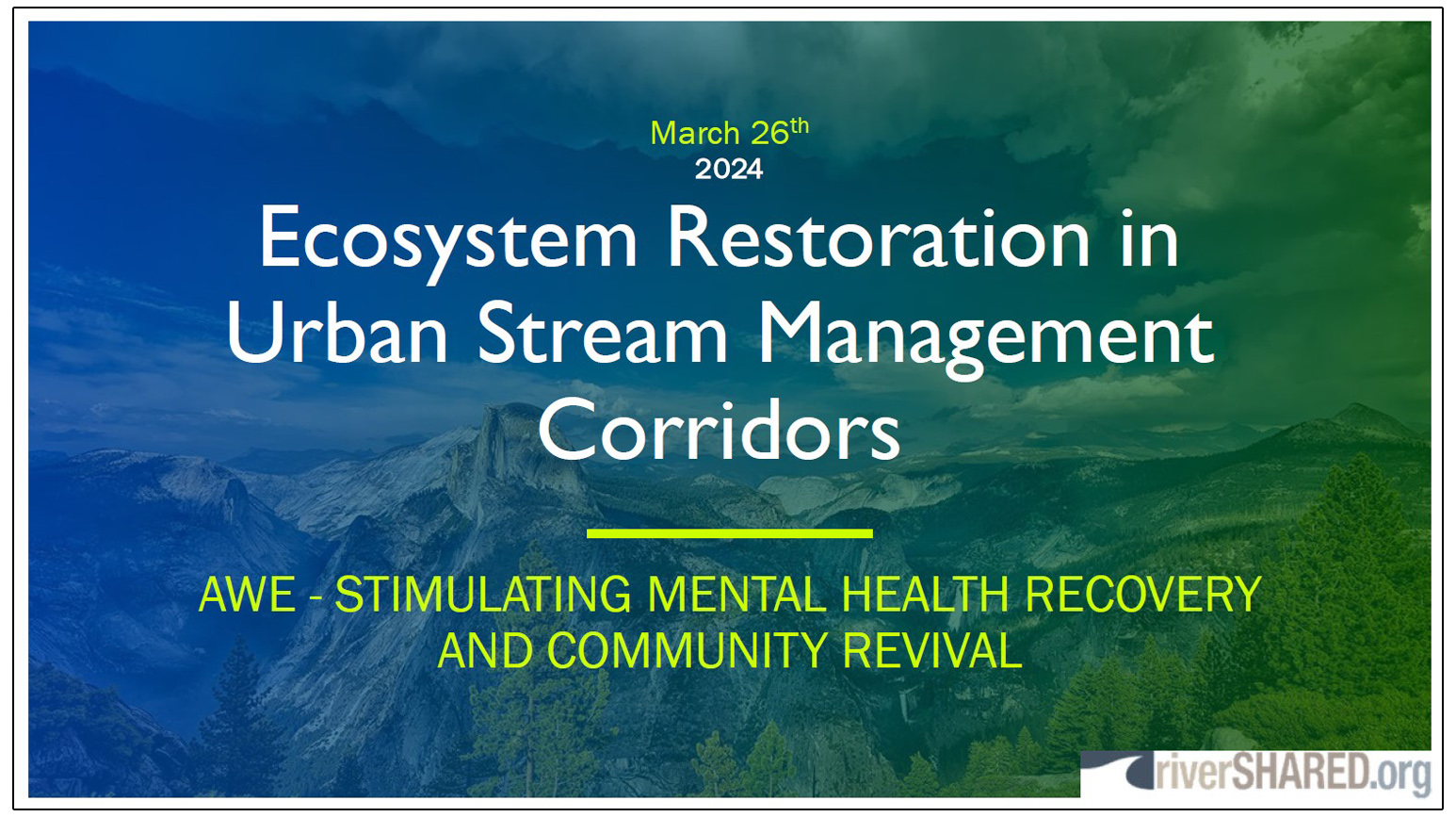TRACK 2, DAY 1
Ecosystem Restoration in Urban Stream Management Corridors to Stimulate Mental Health Recovery and Community Revival
ABSTRACT
Ecosystem and Stream Restoration has been done for years to improve habitat and water quality but very rarely does a project truly focus on community revival and mental health recovery associated with an emotion of awe when in an ecosystem restoration project.
This presentation is to talk about the future of ecosystem restoration and how it may be able to be used as a tool in mental health recovery and community revival without gentrification.
There are a lot of ecosystem restoration projects that have been constructed and are not well accessed by the public ecosystem restoration has historically focused on the restoration of species habitat without much interaction with humans.
Wild Awe is an emotion that allows humans to become grounded or humble. Dealing with mental health disorders such as post-traumatic stress disorder could improve by increased connection to nature. Scheduled and routine Journeys into a natural ecosystem restoration could help put people back into wild awe.
Urban development has historically disconnected people from nature and the result is increased crime rates with decreased connections to nature. Communities have been historically focused on wild awe and this restoration could produce positive results related to mental health recovery.
This presentation will demonstrate two potential projects in Alabama. On the historically disadvantaged community of Prichard AL and another project in Shorter AL with an opportunity to team with the AHERO veterans’ group.
Community revival and mental health recovery are being used as a goal for an ecosystem restoration project. These projects are being done in conjunction with many partners and stakeholders through RiverSHARED.org.
ABOUT THE PRESENTER

David Bidelspach, RiverSHARED
Mr. Bidelspach is a nationally recognized river restoration specialist with a broad range of experience restoring damaged ecosystems.
His academic and research background includes five years with the Stream Restoration Program at North Carolina State University (NCSU), where he provided assessment, design, and construction oversight services on many restoration projects and taught courses related to river assessment, restoration design, and construction administration.
He also worked for nine years as the river restoration technical leader for a large engineering consulting firm. He has completed more than 100 river restoration/stabilization projects in 29 states, 6 Canadian Provinces/Territories, and Costa Rica.
He specializes in using Natural Channel Design (NCD) coupled with a traditional engineering framework for river restoration designs to achieve optimal project goals and objectives.
The MCDA framework has been utilized and taught by Mr. Bidelspach and incorporates NCD, three-dimensional (3-D) stream design, limiting factors analysis for fisheries, flood risk, geomorphic assessment, river resiliency, cost analysis, changing points of diversion, and stakeholder involvement into a design optimization scheme.

